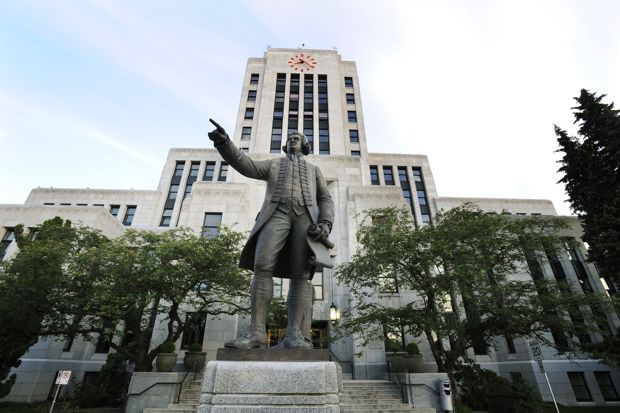Councillors at the City of Vancouver are hoping to improve whistleblower protection for city staff after a series of investigative stories by Global News exposed possible wrongdoings at city hall.

The motion, moved by Coun. Adriane Carr and seconded by Coun. George Affleck, refers to two Global News stories by reporter Tanya Beja that exposed potential mishandling of large real estate development projects in the city, and aims to help curb the possibility of corruption.
In November, Global News reported developer Onni received a $1.5-million break on a Richards Street condominium project. After the report, the City admitted the money was mishandled and Onni ultimately agreed to repay the money back to taxpayers.
This spring, Global News also reported on a controversial land swap deal between developer Brenhill and the City, where it appears the City lost out on $65 million worth of land. The RCMP are now reviewing a complaint over the deal.
Affleck says the revised policy would provide “an internal mechanism for staff when perhaps either elected officials or other staff might be doing something that’s considered to be inappropriate or not to the best interest of the citizens of the city.”
It would allow staff to report such corruption or wrongdoings without potential repercussions to their career.
“We know from the Charbonneau Commission that looked into the corruption happening several years ago in Montreal, that strong whistleblower protection is absolutely essential to protect city staff who provide evidence of that corruption,” said Carr. “I work by the precautionary principle. Vancouver’s whistleblower policy is weak compared to other cities. The goal of my motion is to strengthen it.”
The new motion compares whistleblowing policies between the City of Vancouver and the City of Toronto, and finds that Vancouver could do much more to protect staff who report wrongdoings.
Toronto’s policy aims to “facilitate the disclosure of wrongdoing that is contrary to the public interest,” while Vancouver’s policy does not reference public interest and instead, asks that staff act “in a way that enhances public confidence in the City.”
In Toronto, staff are allowed to remain anonymous when making reports, but Vancouver’s policy discourages whistleblowers from remaining anonymous. It also mandates that investigations are the responsibility of the city manager and manager of human resources, while in Toronto, such investigations are done by an outside third party.
Lastly, Toronto’s bylaw requires the city manager to take action to stop any reprisal against a whistleblower, while in Vancouver, there is no such requirement.
The motion asks the City to revise its policy to include the “protection of the public interest as the primary purpose of whistleblower protection for city staff,” provide independent investigation into alleged wrongdoings, enable and protect anonymity, and to ensure staff who report wrongdoing in good faith are protected from reprisal.
While the motion specifically mentions the two Global News investigations, Affleck would not confirm whether any specific instances of corruption led him and Carr to present the policy.
“I’m not going to say whether or not there’s been things in the past,” Affleck said. “Obviously we’ve had several lawsuits against us, we’ve had the public concerned about some of our decisions, and perhaps, lack of transparency about them in a general sense.”
Affleck added that there’s a “definite frustration” by Vancouverites on how the City operates, and that many believe there are “inappropriate” things happening within city hall.
“There’s this perception that fundraising for political parties may have this perception of influence. If that did happen, if there was some sort of influence in decision-making — whether it be staff or elected officials — there would be opportunity for staff or whoever to report that.”




Comments